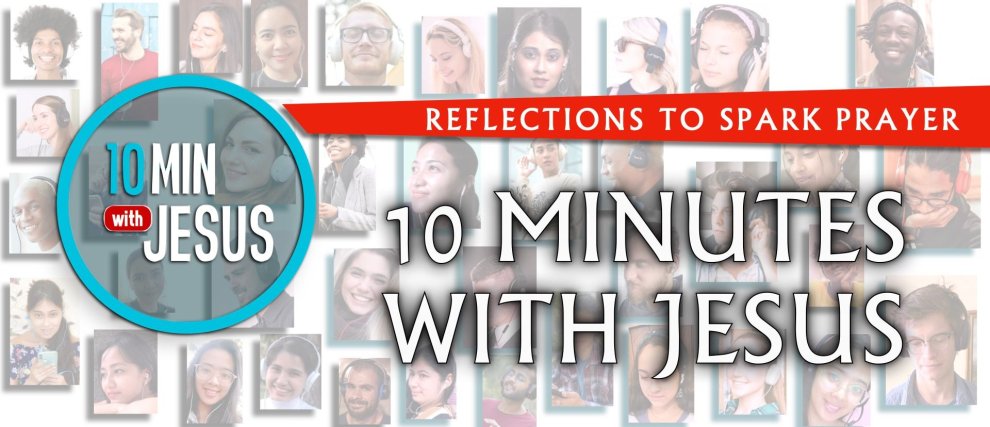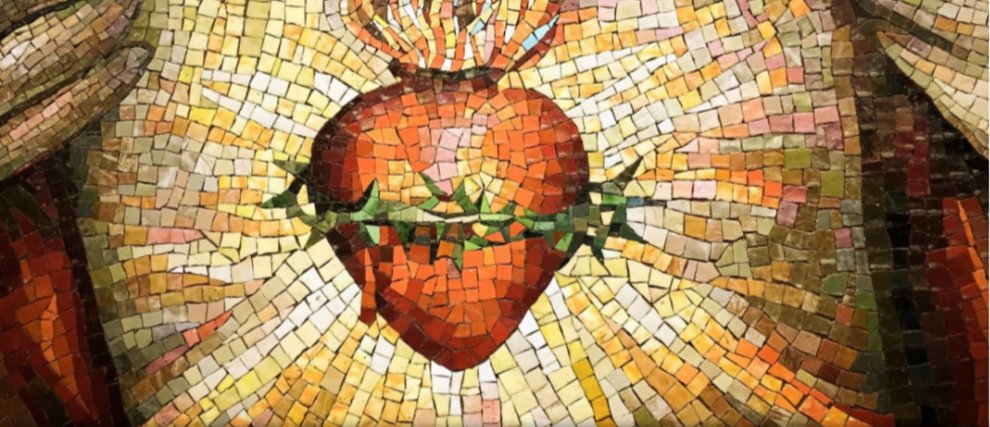On the Road to Emmaus (Luke 24: 18-35)
In the Gospel of Luke, we can read the story of the encounter between the Resurrected Jesus and two of His disciples on the road to Emmaus. They both saw Him, but did not recognize Him. This Bible passage describes to us to how sad and discouraged they were, because they did not believe in the Resurrection of Jesus. Let’s walk along with the pilgrims of Emmaus, and discover how the Words of Jesus and the breaking of the bread helped them finally recognize their Lord.
The Encounter on the Road to Emmaus
13 Now that same day two of them were going to a village called Emmaus, about seven miles from Jerusalem.
14 They were talking with each other about everything that had happened.
15 As they talked and discussed these things with each other, Jesus himself came up and walked along with them;
16 but they were kept from recognizing him.
17 He asked them, “What are you discussing together as you walk along?”
They stood still, their faces downcast.
18 One of them, named Cleopas, asked him, “Are you the only one visiting Jerusalem who does not know the things that have happened there in these days?”
19 “What things?” he asked. “About Jesus of Nazareth,” they replied. “He was a prophet, powerful in word and deed before God and all the people.
20 The chief priests and our rulers handed him over to be sentenced to death, and they crucified him; 21 but we had hoped that he was the one who was going to redeem Israel. And what is more, it is the third day since all this took place.
22 In addition, some of our women amazed us. They went to the tomb early this morning
23 but didn’t find his body. They came and told us that they had seen a vision of angels, who said he was alive.
24 Then some of our companions went to the tomb and found it just as the women had said, but they did not see Jesus.”
25 He said to them, “How foolish you are, and how slow to believe all that the prophets have spoken! 26 Did not the Messiah have to suffer these things and then enter his glory?”
27 And beginning with Moses and all the Prophets, he explained to them what was said in all the Scriptures concerning himself.
28 As they approached the village to which they were going, Jesus continued on as if he were going farther.
29 But they urged him strongly, “Stay with us, for it is nearly evening; the day is almost over.” So he went in to stay with them.
30 When he was at the table with them, he took bread, gave thanks, broke it and began to give it to them.
31 Then their eyes were opened and they recognized him, and he disappeared from their sight.
32 They asked each other, “Were not our hearts burning within us while he talked with us on the road and opened the Scriptures to us?”
33 They got up and returned at once to Jerusalem. There they found the Eleven and those with them, assembled together
34 and saying, “It is true! The Lord has risen and has appeared to Simon.”
35 Then the two told what had happened on the way, and how Jesus was recognized by them when he broke the bread.
Who Do You Say I Am?
Our own answer to this question depends on how much the Word of Jesus means to us individually. The disciples of Emmaus considered Jesus as a “prophet, powerful in word and deed before God and all the people.” (Luke 24: 19).
In Christianity, Jesus is more than a prophet: God did not claim that a prophet would resurrect, but that Christ would be raised from the dead. When Peter proclaimed: “You are the Messiah, the Son of the living God.” (Matthew 16: 16), Jesus could see his joy, because He knew this revelation came from the Father Himself. Seeing Jesus as who He is brings us happiness: we realize that nothing is stronger than Him, not even death.
Bread and Wine
Who is Christ to you? This passage from the Bible is filled with lessons on the Resurrected Jesus. We learn that he is always there with us whenever we feel sad or lost. We learn that He is always ready to enlighten our path and teach us His Word with patience and kindness. Above all, we learn that taking His bread brings us wisdom. The bread and wine symbolize the body and blood of Christ, offered to us in sacrifice. His body (bread) and blood (wine) is enough to sustain us, and to absolve all our sins.
The Encounter with the Resurrected Christ
During our lives, we can often feel discouraged. Whether we’re failing at work, in our studies, in our family life, we only want one thing: to stop everything and abandon the journey.
Some people manage to keep going, and so with a broken heart. It would help to meet the Resurrected Christ. Christ knows suffering too: He was mocked, betrayed… and He died at the hands of the very people who mocked and betrayed Him. But He returned! He was raised from the dead, and now He sits at the right-hand of the Father in Heaven. Hear Him speak to us, and your faith will be replenished: He can accompany you on the path of life.

